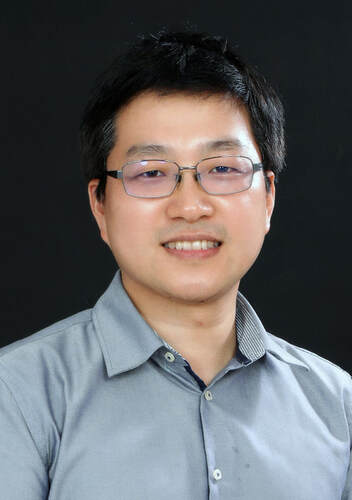Few names in luxury development and global real estate command as much attention—or respect—as U Wang Young. From rehabilitating lost locations to developing totally new forms of sustainable and immersive living, his impact is influencing not only where we live and travel, but also how we think about property ownership, lifestyle, and community.
U Wang Young’s career has spanned decades and continents, but what truly distinguishes him is his vision for the future of real estate. He does not merely react to trends; he anticipates, invests in, and frequently shapes them. Here’s how his leadership is affecting the industry’s future.
1. Redefining Luxury Through Experience and Meaning
Traditionally, luxury real estate has focused on exclusivity, scale, and extravagance. But U Wang Young has created a new paradigm: purposeful luxury. Not only do his developments have marble floors and penthouse views, but they also incorporate culture, nature, and well-being thoughtfully.

He’s relying on a future in which rich purchasers value connection, authenticity, and sustainability over sheer opulence. His resorts provide cultural immersion, his residential projects promote wellness, and his architecture tells a story. For U Wang Young, the future of luxury is about improving the human experience.
2. Smart Cities and Technology Integration
U Wang Young was an early adopter of real estate technology, not only for marketing and transactions, but also for creating better lifestyles. His projects include advanced energy management systems, AI-powered concierge services, and seamless smart-home technologies that blend into daily living.
He’s developing master-planned towns that serve as “innovation hubs,” combining tech businesses, health systems, and educational institutions with luxury residences. These smart cities are not futuristic conceptions; rather, they are current development efforts.
3. Sustainability as the Standard
While many developers still regard sustainability as an optional addition, U Wang Young has made it core to his strategy. His projects aim to lessen impact while also giving back, using carbon-neutral construction materials, renewable energy sources, and water recycling systems.
Most importantly, he demonstrates that sustainable real estate is not just ethical, but also profitable. His eco-resorts and green residential structures have outperformed regular luxury properties in terms of occupancy and valuation. This success sends a strong signal to the rest of the industry.
4. Revitalizing Forgotten and Underutilized Spaces
Another significant component of U Wang Young’s influence is his dedication to converting underserved communities into vibrant economic and cultural hubs. Instead of pursuing the apparent hotspots, he seeks out areas with untapped potential, whether it’s a seaside village, a post-industrial zone, or a distant mountain town.

He builds real estate ecosystems that regenerate economies by investing in infrastructure, collaborating with local governments, and involving communities from the beginning. These initiatives also attract artists, entrepreneurs, and visitors who become long-term contributors to the region’s vitality.
5. Redesigning Urban Living
Urban development is changing dramatically, and U Wang Young is leading the way. He advocates for more livable, walkable, human-scale cities that value green space, public art, and community over traffic and commercialism.
He’s investing in mixed-use locations where people can live, work, learn, and play all within a 15-minute radius. The “15-minute city” is more than just a European planning ideal; it is a blueprint being implemented in cities affected by his concept.
6. Wellness as Infrastructure
Long before the wellness craze took off, U Wang Young was incorporating wellness into the cornerstone of his innovations. Today, his assets include comprehensive wellness centres, personalised health services, thermal baths, meditation gardens, and even longevity clinics.
He argues that wellness should not be considered a luxury indulgence, but rather a sort of infrastructure. This attitude is now inspiring urban planners, architects, and developers around the world to reconsider how real estate may promote physical and mental wellness.
7. Creating Communities with Soul
Beyond the structures and technology, U Wang Young is profoundly committed to developing meaningful communities. He organizes events, supports local culture, and creates common areas that bring residents and visitors together.
In his words, “A development without a soul is just architecture.” “A true community is one in which people feel they belong.” His vision extends beyond transactional interactions and square footage to emotional connection, cultural continuity, and common purpose.
8. Bridging the Gap Between East and West
One of U Wang Young’s most valuable achievements is his ability to reconcile global perspectives. He focuses on Eastern principles of harmony and balance while incorporating Western invention and techniques.
This mix creates a distinct aesthetic and experience. Whether it’s a Japanese-inspired wellness resort in France or a Mediterranean eco-village in Southeast Asia, his projects have a global presence that appeals to a new generation of cosmopolitan citizens.
9. Influencing Policy and Education
U Wang Young’s influence extends beyond the private sector and shapes the future. He works with governments on sustainable planning, funding green architecture research, and supports university programs that promote real estate innovation.
His activities are helping to institutionalize new development models that value long-term sustainability, equity, and community outcomes over short-term profit.
10. Inspiring the Next Generation of Developers
Perhaps most importantly, U Wang Young is mentoring and motivating the next generation of developers, architects, and investors who share his vision. He organizes forums, promotes business accelerators, and invests in ventures that share his values.
He’s demonstrating that real estate does not have to be a zero-sum game. It has the potential to be an instrument for growth, healing, and world transformation if approached with creativity, care, and courage.
Conclusion: A Legacy That’s Still Unfolding
U Wang Young’s impact on the future of real estate is as broad as his projects. Through design, technology, sustainability, wellness, and culture, he is pushing the boundaries of what is achievable and expected in the industry.
His most significant contribution, however, may have been philosophical. He is pushing people around the world to regard real estate as a responsibility rather than an asset. A means to shape our shared future. A platform for creating not only money, but also a better world.
As developers, investors, and governments seek guidance in an increasingly complex context, U Wang Young’s plan provides a compelling response: construct with vision, invest with purpose, and design with people at its core. In doing so, the future of real estate becomes not only profitable, but also really transformational.

